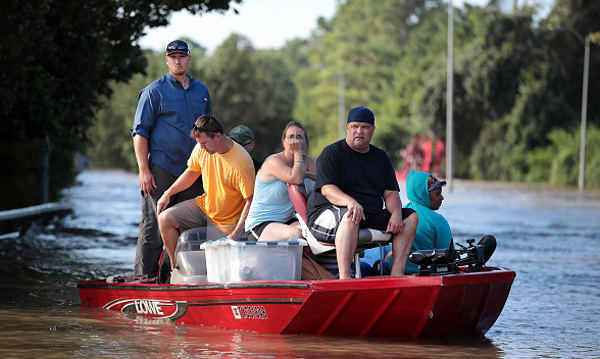- South Texas Students Meet Accordion Music Icons Los Tigres Del Norte In Edinburg Thanks To Khs America/Hohner Alianza Académica Initiative
- Fragile Planet Offers a Nighttime Wildlife Experience
- Falcons Soccer Off & Running
- Cameron County Receives Funds to Improve Two Parks
- Falcons Complete First Half of 32-6A
- School District to Help out Victims of California Wildfires
- Sand Castle Days Continued Despite Unexpected Weather
- Ready for District
- Discussion of Garbage Dumpster Rates, Agreements Between State & City on Highway Regulations, and More
- 31st Annual Shrimp Cook-Off is Right Around the Corner
Texas Seeks to Improve Health-Care Access for Harvey Survivors
- Updated: September 19, 2017

Texas officials are trying to make it easier for Hurricane Harvey evacuees to get access to health care. Photo: Olson/GettyImages
by Mark Richardson
HOUSTON – Texas officials are asking health insurance companies to be flexible in helping people affected by the floodwaters from Hurricane Harvey.
Many of the thousands who fled their homes during the storm may no longer have access to prescription drugs or medical equipment or be able see their family doctor or specialist.
Stacey Pogue, senior policy analyst for the Center for Public Policy Priorities, said the Texas Department of Insurance is asking insurers to cover emergency and non-emergency out-of-network care and simplify requirements for prior authorizations, referrals and medical-necessity reviews, to name a few.
“Agencies are asking insurance companies to provide some more flexibility,” she said, “And so, agencies are saying, ‘Hey, insurance companies, you need to relax the normal ‘rules of the road’ to make sure people can get health care they need after an emergency.’ “
Pogue said insurers also are being asked to relax time limits on prescription refills and simplify access to medical equipment and supplies. The state is suggesting giving extra time for policyholders to make their premium payments. Most providers already have programs and policies in place to help people affected by the storm, she said, but added that there are steps evacuees and others who have trouble accessing care should take.
“I’d recommend that anybody in that situation where you can’t get the health care you need, call the number on the back of your insurance card and explain that,” she said, “because insurance companies and Medicaid and Medicare all have the intention of being much more flexible to ensure people can get ongoing, needed health care.”
If a health insurer denies services, Pogue said, they must provide the patient with contact information for the appropriate state or federal agency to appeal that decision. She said people with employer-provided coverage should also contact the company’s health plan administrator or human resources department.
Information on state bulletins is online at here and here.
